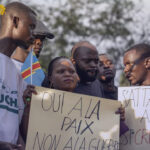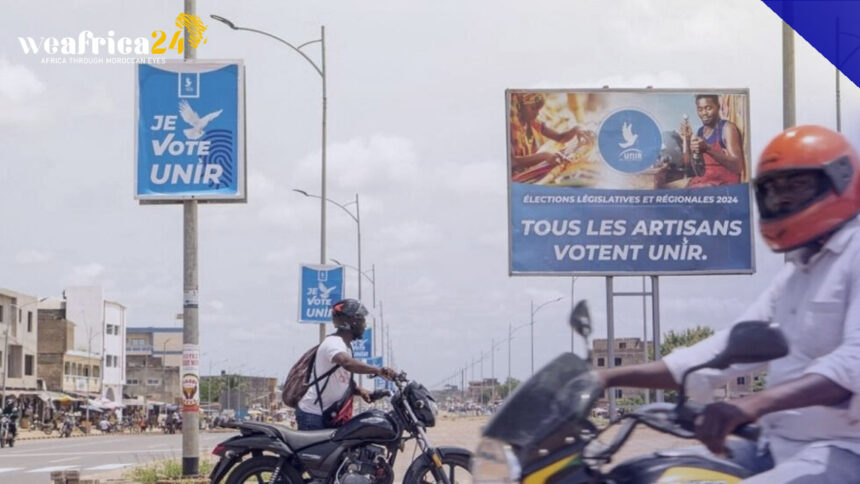More than four million Togolese voters are heading to the polls on Monday, April 29th, for legislative and regional elections. Delayed several times, this dual ballot occurs against the backdrop of a new Constitution adopted by outgoing deputies on April 19th, transitioning Togo from a presidential to a parliamentary regime. Will the elections turn into a referendum for or against the new text? This is the hope of the opposition, returning to the race after boycotting the 2018 legislative elections.
“We have learned from our past mistakes,” emphasized several figures of the Togolese opposition, abandoning the policy of empty chairs that relegated them to extra-parliamentary parties. These elections mark the return to the fray of parties such as Jean-Pierre Fabre’s ANC and Brigitte Adjamagbo Johnson’s DMP. In the last legislative elections in 2018, they boycotted the vote, citing irregularities in the voter registration process.
This time around, they are gearing up to challenge President Faure Gnassingbé’s UNIR party at the polls, as it seeks to retain its absolute majority. The focus is on the 113 parliamentary seats and, for the first time, 179 regional council seats up for grabs in the double legislative and regional elections on Monday, April 29. Despite opposition claims about voter registration files, the new electoral demarcation, and delays in organizing the poll, the ruling party aims to maintain its grip.
The ruling party aims to maintain an absolute majority
The elections were originally scheduled months ago, as the mandate of the deputies expired early in 2024. Initially set for the first quarter, they were postponed twice. The last postponement occurred just hours before the start of the campaign, allowing the government time to explain the new Constitution’s contents to the Togolese people.
The issue of constitutional change has dominated the entire campaign, overshadowing concerns about the cost of living, access to basic services, and government accountability.
This text, transitioning Togo from a presidential to a parliamentary regime, was passed in its second reading on April 19 by the outgoing deputies with unanimous support (87 votes out of 91). It stipulates that the President of the Republic—whose role becomes symbolic—is elected by parliamentarians.
Executive power rests with a Prime Minister, who is the leader of the majority party in the Assembly. If this new Constitution had applied to the outgoing Assembly, this function would have thus fallen to Faure Gnassingbé, as the president of the UNIR party.
For several weeks, the constitutional change has sparked anger among parts of civil society and the opposition. While the majority presents it as a means to strengthen people’s power, opponents see it as a way for Faure Gnassingbé, in power since 2005 after succeeding his father, to stay at the helm of the country without term limits and without directly facing opponents at the polls.
“It is a unique election that Togo is about to experience!” summarizes Berges Mietté, an associate researcher at LAM (Les Afriques dans le monde), capturing the main challenge for the ruling UNIR party: retaining absolute majority, especially under the new Constitution, as a strong opposition could jeopardize the entire setup.
“A constitutional coup,” denounce the opponents
Unable to hold rallies, which they are prohibited from, opponents have thus seized upon the electoral campaign to denounce what they term a “constitutional coup.” Nathaniel Olympio, a member of the “Touch not my Constitution” front and president of the Togolese Party, is not running in the election, considering that “elections in Togo have become a tool for power confiscation.” However, for him, “the opposition’s objective is to turn the election into a referendum for or against the constitutional change.”







